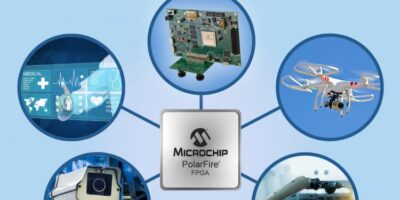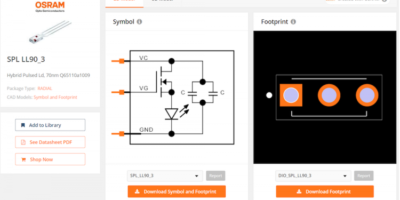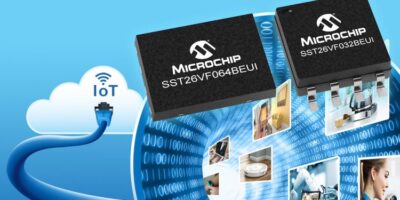Microchip has added low-power PolarFire FPGAs with enhanced high-speed imaging interfaces, an intellectual property (IP) bundle for image processing to its Smart Embedded Vision initiative.
FPGAs are increasingly popular in vision-based systems, for their high bandwidth processing capabilities in intelligent systems deployed in small form factors with tight thermal and power constraints.
The Smart Embedded Vision initiative provides a suite of FPGA offerings that includes IP, hardware and tools for low-power, small form factor machine vision designs across the industrial, medical, broadcast, automotive, aerospace and defence markets.
The initiative includes a serial digital interface (SDI) IP which is used to transport uncompressed video data streams over coaxial cabling. The interface is available in multiple speeds: HD-SDI (1.485Gbits per second, 720p, 1080i), 3G-SDI (2.970Gbits per second, 1080p60), 6G-SDI (5.94Gbits per second, 2Kp30) and 12G-SDI (11.88 Gbits per second, 2Kp60).
A MIPI-CSI-2 IP, operating at 1.5Gbits per second per lane is a sensor interface that links image sensors to FPGAs. The PolarFire family supports receive speeds up to 1.5Gbits per second per lane and transmit speeds up to 1Gbits per second per lane.
There is also an image sensor interface IP. The 2.3Gbits per second per lane SLVS-EC Rx – SLVS-EC Rx supports high-resolution cameras. Customers can implement a two-lane or eight-lane SLVS-EC Rx FPGA core.
Microsemi’sPolarFire family can support one, 2.5, five and 10Gbits per second speeds over an Ethernet PHY, enabling the initiative to meet the need for Universal Serial 10GE Media Independent Interface (USXGMII) MAC IP with auto-negotiation.
CoaXPress is a standard used in high- performance machine vision, medical and in industrial inspection. Microchip will support CoaXPress v2.0, which doubles the bandwidth to 12.5Gbits per second.
The HDMI 2.0b IP core today supports resolutions up to 4K at 60 frames per second transmit and 1080p at 60 frames per second receive.
The PolarFire FPGA imaging IP bundle features the MIPI-CSI-2 and includes image processing IPs for edge detection, alpha blending and image enhancement for colour, brightness and contrast adjustments.
A new ecosystem partner is Kaya Instruments, which provides PolarFire FPGA IP Cores for CoaXPress v2.0 and 10 GigE vision. The ecosystem also includes Alma Technology, Bitec and artificial intelligence partner ASIC Design Services, which provides a Core Deep Learning (CDL) framework that enables a power-efficient convolutional neural network (CNN)-based imaging and video platform for embedded and edge computing applications.
All Smart Embedded Vision solutions are supported by the Libero® SoC Design Suite, Microchip’s comprehensive development tool.
Through the Libero SoC Design Suite, all IP can be implemented on the PolarFire FPGA Video and Imaging Kit, the evaluation platform for Smart Embedded Vision designs.







